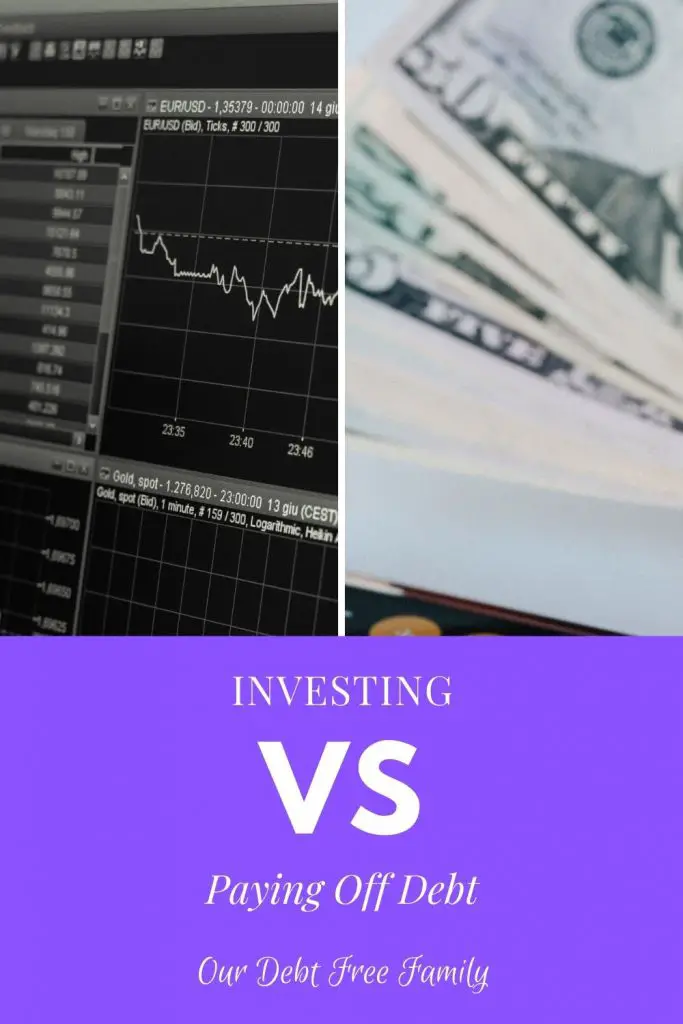
A lot of people in the debt-free community (especially if they are Dave Ramsey followers) believe you have to choose between investing or paying off debt. This black-and-white thinking could potentially be holding you back from larger financial goals though. You don’t have to choose. You can do both. Here’s how.
Choosing Between Investing or Paying Off Debt
Any time you come into some “extra” money it is difficult to decide where it should be allocated. When your finances are the main focus in your life, like it is for many of us, it is hard to decide whether you should be investing in your future or focused on paying off debt.
The answer to this question will vary from person-to-person and family-to-family. After all, personal finance is personal, right? If you still hold a lot of debt, no you shouldn’t be thinking about making any investments right now. Focus on getting your high-interest debts paid off and then shift your gaze to making investments for the future.
For us, our main focus has been paying off debt. I’ve had people ask, “Why aren’t you investing yet?” I always thought to myself, “Well, because I still hold a lot of debt.” That does not necessarily mean you can’t invest though. In fact, in some cases, your return on your investment may benefit you more than paying off your debts. That is a rather unpopular opinion in debt-free circles online though.
Now, that isn’t to say that you should drop down to minimum payments on all of your debts and throw the extra cash into an investment portfolio. You have to go about it the right way.
How to Invest While Paying Off Debt
So, how do you invest while simultaneously paying off debt?
Investing and paying off debt are both good uses of your money any way you look at it. However, you want to be sure you are making the most of every penny. At the end of the day, paying off your high-interest debts will provide a better return on your money than any investment you will make. Make a list of your debts from highest to lowest interest.
The key is to look at interest rates versus your potential return. If the return you’d be earning is higher than the interest you are paying on your debts, make the investment. For example, if you hold a mortgage loan that has 5% interest but your portfolio return is 10%, the investment may be the better decision for you. Unfortunately, for the most part, investments are not always that straightforward. Something that is performing well this year may not be next year.
Many people use investments this way to come up with the money they need to pay off their debt more quickly as well. If you think you can earn in the stock market in a way that will further your debt freedom goals, do it! But you really need to put thought into the numbers before making that move.
Leave a Reply